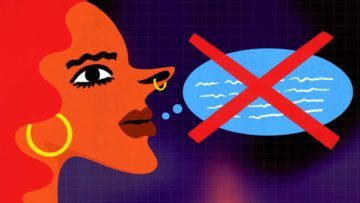Allie Volpe in Vox:
 Julia Strand was confident in her scientific findings when they were published in 2018. Strand’s research showed that when a circular beacon of light was present in a noisy setting, people expended less energy listening to their conversation partner and responded quicker than without the light. The feedback was positive and Strand, an associate professor of psychology at Carleton College in Northfield, Minnesota, had received grant funding to continue her research. Some months later, however, Strand was unable to replicate her results. In fact, she found the opposite to be true: The light forced people to think harder. Strand had crossed her t’s, dotted her i’s, and showed her work — and still she was wrong. “The bottom dropped out of my stomach,” Strand says. “It was terrible to realize that I had not just made a mistake, but published a mistake.”
Julia Strand was confident in her scientific findings when they were published in 2018. Strand’s research showed that when a circular beacon of light was present in a noisy setting, people expended less energy listening to their conversation partner and responded quicker than without the light. The feedback was positive and Strand, an associate professor of psychology at Carleton College in Northfield, Minnesota, had received grant funding to continue her research. Some months later, however, Strand was unable to replicate her results. In fact, she found the opposite to be true: The light forced people to think harder. Strand had crossed her t’s, dotted her i’s, and showed her work — and still she was wrong. “The bottom dropped out of my stomach,” Strand says. “It was terrible to realize that I had not just made a mistake, but published a mistake.”
Being wrong is an unavoidable aspect of the human condition. Defining what constitutes “wrong,” however, can get messy. People can be wrong about any multitude of things, from misremembering the name of a ’90s pop song to incorrectly casting blame onto a friend during a heated argument. Mistakes happen on scales big and small, topics tangible and moral or ethical. In the 2010 book Being Wrong: Adventures in the Margin of Error, author Kathryn Schulz loosely defines being wrong “as a deviation from external reality, or an internal upheaval in what we believe” — with the caveat that wrongness is too vast to fit neatly into either category.
More here.
